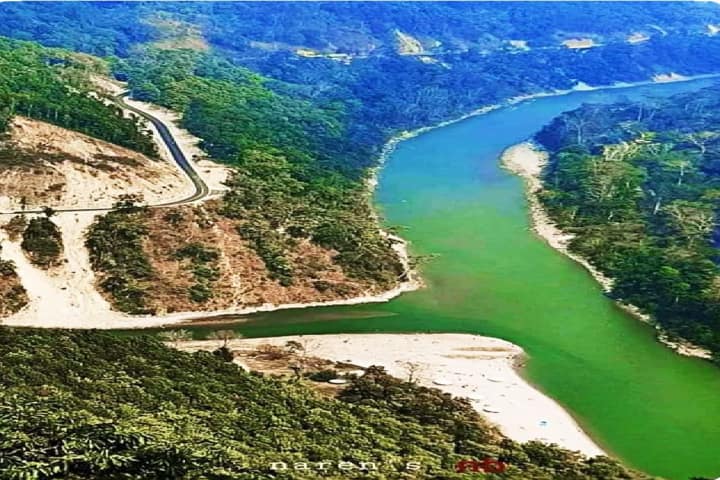
by Saleem Samad 23 March 2023
Both Bangladesh and India are embarrassed over the immense delay towards a sustainable solution to sharing of the transboundary Teesta river, which remains a bone of contention between the two closest neighbors.
This week Bangladesh has raised fresh concern with New Delhi, after an Indian newspaper The Telegraph reported that West Bengal State Government has plans for three hydropower projects in Darjeeling hills in the foothills of the Himalayas, risking further discomfiture for Dhaka, which has been waiting for more than a decade to sign a treaty for sharing Teesta’s waters.
The news prompted Bangladesh to send a ‘note verbale’ (diplomatic note) to the Indian Ministry of External Affairs in New Delhi’s South Block, seeking information about West Bengal’s plan to withdraw water from the upper riparian international river for irrigation and hydropower projects, confirmed Bangladesh Foreign Secretary Masud Bin Momen.
On the other hand, the State Minister for Water Resources Zaheed Farooque said the Joint River Commission (JRC) is also contemplating sending a letter to India seeking details about the West Bengal government’s plan for the construction of hydropower plants on the same river in Darjeeling.
Teesta, once a mighty river flowing from Himalaya glaciers that crisscrosses some 115 kilometers inside Bangladesh, now runs like a stream in Bangladesh in the lean period and overflows during the monsoon which causes frequent floods in the region.
What worries Prime Minister Sheikh Hasina’s government, is that India has not officially communicated regarding a fresh plan to divert waters from upstream, as it shares at least 54 transboundary rivers as a lower riparian country with India.
Bangladesh Foreign Ministry Spokesperson Seheli Sabrin said the Teesta river issue may also be raised at the UN-2023 Water Conference, to be held at the UN headquarters in New York on March 22-24.
The daily published from Kolkata on March 13, also writes that the transfer of 1,000 acres of land to the irrigation ministry of West Bengal to excavate two new canals for withdrawing water from Teesta and Jaldhaka for irrigation to serve around one lakh farmers in Jalpaiguri and Cooch Behar.
Two of the three planned Darjeeling projects are likely to significantly reduce the flow of water in the Teesta that is available for irrigation, particularly during the December-April lean period when the demand for irrigation water goes up in Bangladesh, the spokesperson added.
Water resources expert Prof Ainun Nishat said that the matter of diverting water from Teesta has to be handled politically. It cannot be resolved on technical grounds in absence of an appropriate legal instrument, he told an influential daily News Age published from Dhaka.
India-Bangladesh talks on sharing waters of common rivers have stalled for over 13 years, holding back the signing of interim agreements on the Teesta and Feni rivers and making negotiations on the six others uncertain.
The much-awaited 38th ministerial-level meeting of the Indo-Bangladesh Joint Rivers Commission concluded in New Delhi in August 2022 without any progress on Teesta water-sharing, which is crucial for Sheikh Hasina’s political well-being.
The junior minister for water resources remarked that the Indo-Bangladesh JRC meeting in Dhaka for resolving the much-awaited Teesta water-sharing meeting in March or April has not received any confirmation from Delhi.
The meeting is important before the visit of Prime Minister Sheikh Hasina to India in September.
There is an environmental angle as well as there are fears that northern Bangladesh will be drier after the withdrawal of water upstream, leading to a severe impact on the region’s nature and environment, which are already under tremendous stress from the impacts of changing climate.
In September 2011, an agreement was almost reached and India was willing to share 37.5 per cent of Teesta waters while retaining 42.5 per cent during the dry season between December and March.
The agreement was scuttled by West Bengal chief minister Mamata Banerjee who refused to accompany Manmohan Singh, the then Prime Minister of India to Dhaka.
The West Bengal leader’s stubborn refusal on a plea that the deal between India and Bangladesh, will jeopardize the much-needed water for farmers in the Indian state of West Bengal. A political resolution to water-sharing has entered into a deadlock.
It is therefore obvious that Teesta will remain the elephant in the room when leaders of India and Bangladesh talk on water sharing.
Hasina will be facing national elections expected early next year and there will be tremendous pressure on her to get the Teesta deal through. The opposition and critics will use the failure to achieve the deal as a political weapon against her.
Bangladesh is one of India’s closest friends in South Asia and Hasina is anxious to get the river deal done.
Prime Minister Narendra Modi has been unable to deliver the Teesta deal, despite his tremendous popularity at home. In fact, he persuaded Banerjee to give a green signal to the deal, apprehending her dwindling popularity in West Bengal’s north.
Despite the odds, Modi is serious to get the treaty inked before Hasina’s elections are just around the corner.
First published in India Narrative, New Delhi, India on 22 March 2023
Saleem Samad, is an award-winning independent journalist based in Bangladesh
